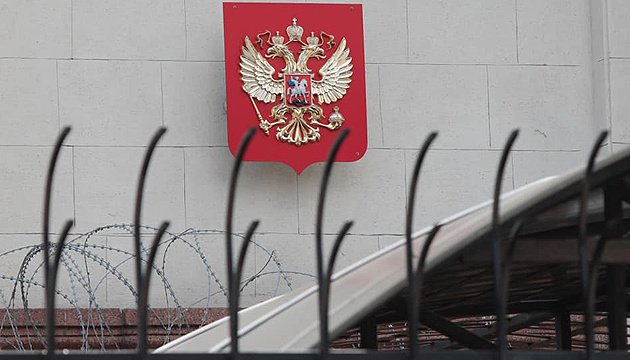
Russian intelligence running anti-West, anti-Ukraine campaign in Serbia - media
To this end, false narrative around the alleged consequences of depleted uranium ammunition use in combat, a source in the Serbian government told Guildhall, according to Ukrinform.
The source reported that in January 2024, Russian intelligence operatives Andrei Temyashov, working under the diplomatic cover of the minister-counselor at the Russian embassy) and Mikhail Generalov (posing as mission adviser of the Russian Embassy) met with Serbian and Italian lawyers Srdjan Aleksic (Срђан Аleksiћ) and Angelo Fiore Tartaglia in order to plan and coordinate a series of events within the framework of the said campaign.
To achieve these goals, Russia is exploiting the theme of the consequences of the use of depleted uranium ammunition during the conflict in Yugoslavia, adapting it to the strategic task of countering the supply of critical ammunition to Ukraine.
In 2022, Srdjan Aleksic and Angelo Fiore Tartaglia drafted a lawsuit against NATO for the use of depleted uranium shells during the conflict in Yugoslavia back in 1999. The lawsuit was filed with the Supreme Court of Serbia in 2022, and the campaign itself was supported by Russian state media Sputnik and RT.
Angelo Fiore Tartaglia, who also represents the interests of the pro-Russian President of Republika Srpska, Miroslav Dodik, also represents the Italian National Association of Depleted Uranium Victims. On February 28, 2022, association representatives had a private audience with the Pope, during which participants accused Western nations of using depleted uranium munitions.
Srdjan Aleksic and Angelo Fiore Tartaglia publicly oppose the supply of Western depleted uranium ammunition to Ukraine. In March 2023, Srdjan Aleksic, in an interview with RIA Novosti, said that the use of shells with depleted uranium in the war zone in Ukraine and elsewhere across the world should be prohibited. Also in March 2023, Angelo Fiore Tartaglia, in an interview with the Italian publication Il Manifesto, criticized the supply of such ammunition to the Armed Forces of Ukraine.
It should be recalled that an UN investigation found that depleted uranium shells used in the Yugoslavia and Bosnia warzones did not in any way affect the environment, the population, and combatants. Reports of an increased cancer rate in Yugoslavia following the use of depleted uranium shells were refuted by a study run by the Italian Ministry of Defense.




